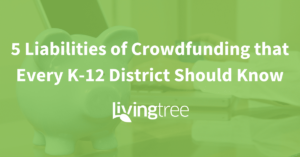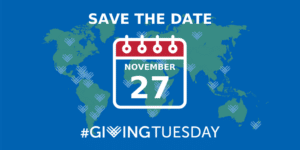As you consider various sources of donations for your organization or charity, businesses can be the perfect partner in supporting your important work. Unlike the process of seeking donations from family, friends, and community members, reaching out to businesses with a request letter or specific donation request requires a specific and, oftentimes, different approach.
But with these helpful considerations and simple steps, you’ll be able to determine which nearby and local businesses to reach out to, and what approaches will afford you the most success in your efforts to connect with a potential donor for a business donation.
How to determine which businesses to ask for donations
You’ll want to be sure that the mission of your organization aligns with the mission of the businesses you’re targeting. If your organization focuses on children, you’ll want to make sure that the local business you’re approaching is also kid-focused in some way, keeping in mind that audiences can be quite broad. For example, an organization that supports kids also affects their parents, grandparents, extended family, and more. You’ll want to be sure you’ve examined your focus in a broad manner to encompass everyone your organization actually reaches.
In addition to mission alignment, you’ll want to be clear about the assets your organization brings to the table. Some of these will be things you can’t actually hold in your hands, like community interaction, emotional experiences, or even loyalty and authenticity. These assets may be quite valuable to a business that is looking to connect in these ways with their community, so it’s important that you highlight your ability to capture these. But also, consider highlighting the more tangible benefits of the business working with your organization, like access to your publicity channels, and your ability to showcase their products, whether at in-person events or online.
How to decide who to approach and what donations to ask for
Once you’ve identified who your organization reaches, and what assets you offer a business, you should be able to easily decide what businesses in your community would best benefit from a collaboration or partnership. Remember, no business is too small or too large. Take a look around your community, and think about all the businesses that are currently serving your community members. Then, make a list of all of the ones you think best align with your mission and would appreciate your assets.
After you’ve created your prospective donor list, you need to have a solid grasp on what kind of contribution you’re actually looking for. Are you interested in only monetary donations? Are you looking for product donations like equipment, supplies, or a gift card? Or do you need volunteers and other services that donors could help with? It’s possible that you were only initially interested in monetary donations, but if a business is willing to donate products that you can sell or services or equipment that you would have otherwise had to pay for, you might want to reconsider your ask.
It’s also possible that a business might initially only be able to offer product or service donations, but establishing that relationship with them now might mean possible cash donations later on, once they see the success of your collaboration.
Know your audience: Think like the business you’re approaching
If you’re going to seek out the support of a business, you need to think like one. A transaction between an organization and a business is actually a business transaction, of sorts, so the more you can understand why they’d want to work with you, the easier the conversation will be with them when you schedule a meeting.
A local community business may be looking to reach more customers, so you’ll need to show them your current reach, and your ability to help them achieve that goal. It’s possible that collaboration with your organization may help them improve their image and appearance to members of the community. How would you go about showcasing this benefit in a way that helps the collaboration become a reality?
Timing is also important – if a local organization has already budgeted their planned giving for the year, your donation letter might hit at a time when they can only make a small donation, but establishing that relationship could still lead to more charitable giving in the future.
It’s also possible that the business is looking to provide their employees with a meaningful experience, whether it’s something that they offer their employees as a benefit, or as a way to improve their team building. Perhaps they could attend your fundraising event as a team-building activity for their employees.
There’s no “wrong answer” for the “why.” You’ll just want to be sure that you’re clear on what the businesses you are approaching might want to get out of their charitable donation and partnership with your organization so that you can ensure your fundraising effort needs to align with their wants.
Learn more about how to manage all of your fundraising efforts on one digital platform, and sign up for your free Livingtree Give account today!




